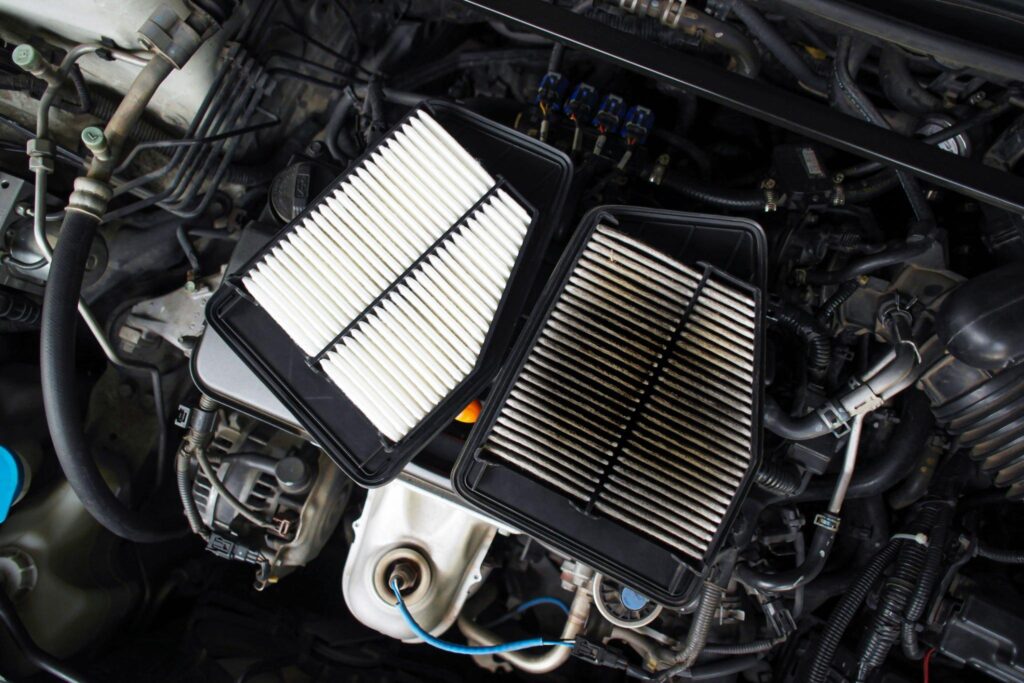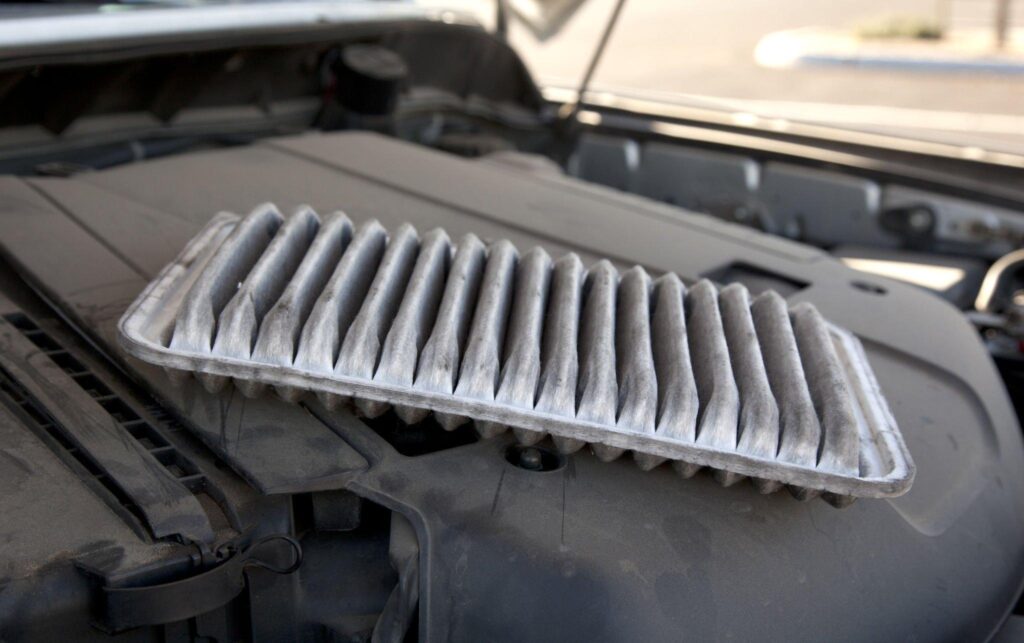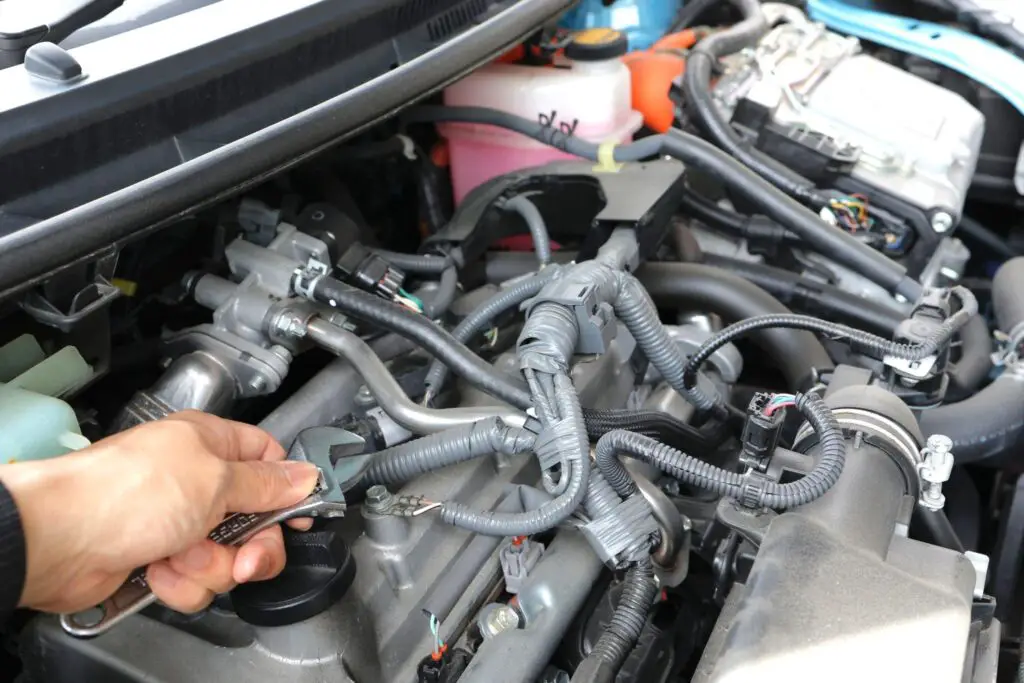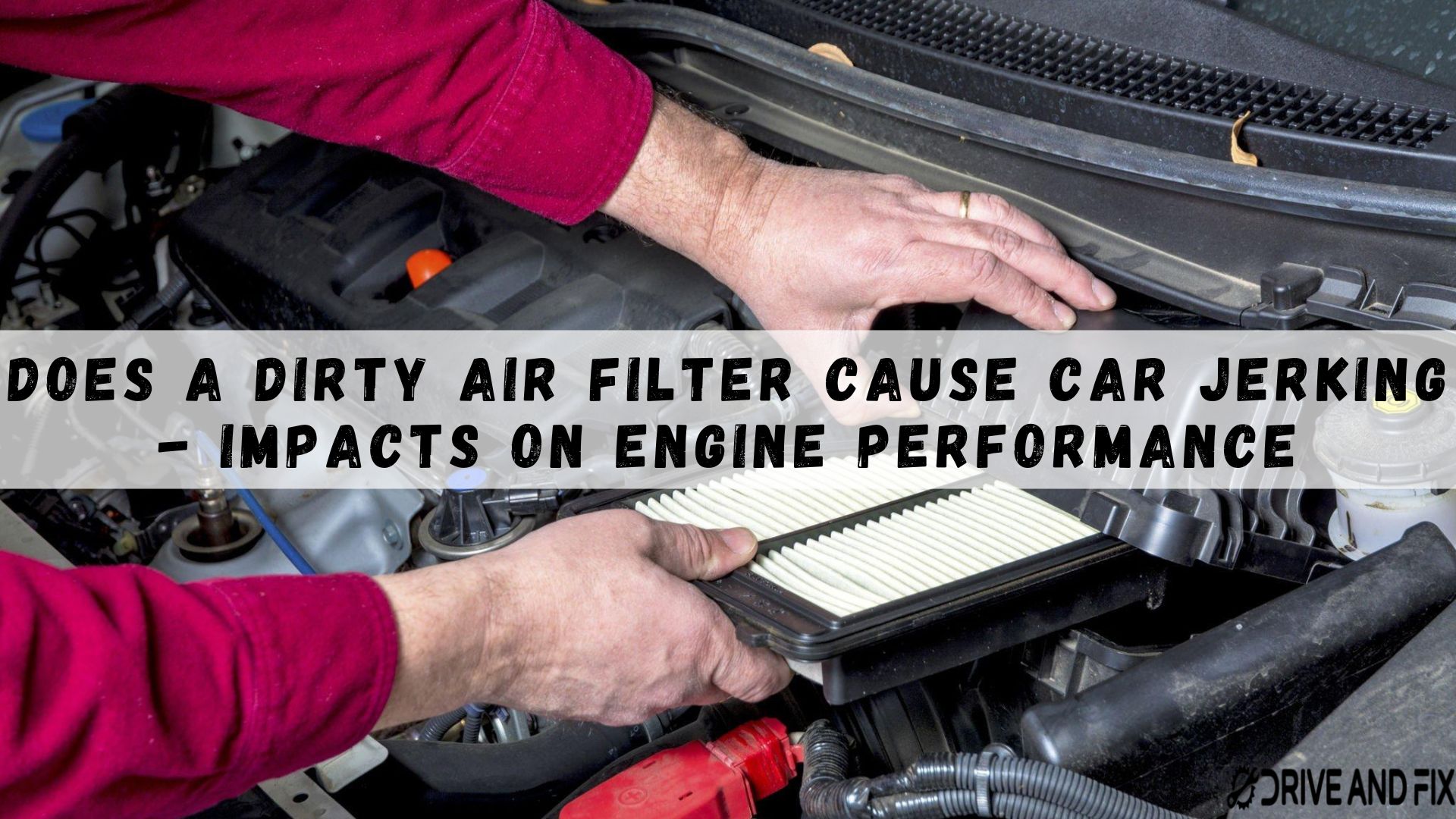Your car’s air filter ensures the engine runs smoothly and efficiently as it acts as a barrier, keeping dirt and other contaminants from entering the engine and causing damage. But what happens when the air filter becomes clogged with dirt and debris? Does a dirty air filter cause your car to jerk or hesitate during acceleration? It’s a common assumption, but the truth may surprise you.
This write-up will explore the connection between dirty air filters and car performance and why a dirty air filter may not necessarily cause your car’s jerk or hesitation. We’ll explore the root causes of these problems and share valuable tips on how you can avoid them. So, if you want to keep your car running smoothly and avoid costly repairs, buckle up, and let’s dive into dirty air filters and car jerking.
What is The Connection Between Air Filters and Engine Performance

Air filters in cars filter harmful particles and contaminants from the air drawn into the engine. These particles include dust, dirt, and other debris that cause damage to engine components. When the air filter becomes dirty and clogged, it restricts airflow into the engine, reducing its ability to perform efficiently. This reduction in airflow can result in reduced engine power, increased fuel consumption, and decreased engine life. A dirty air filter can also cause the engine to run hotter, leading to additional problems such as reduced oil life and wear on engine components. To maintain optimal engine performance, regularly replace or clean the air filter, ensuring a constant supply of clean air to the engine.
Effects of a Dirty Air Filter on an Engine’s Performance.
- Reduced power: When airflow to the engine is restricted, the engine will not be able to perform at its full potential, leading to a decrease in horsepower and torque.
- Increased fuel consumption: A clogged air filter can force the engine to work harder, leading to increased fuel consumption and decreased fuel efficiency.
- Engine hesitation: A dirty air filter causes the engine to hesitate or stall when accelerating, which can be frustrating and potentially dangerous while driving.
- Engine misfires: When the engine is not getting enough air, it can cause misfires, leading to decreased performance and potentially causing damage to the engine over time.
- Engine overheating: A dirty air filter can also cause the engine to run hotter, leading to additional problems such as decreased oil life and increased wear on engine components.
Replace or clean dirty air filters to maintain optimal performance to avoid costly repairs.
Read Also: What If I Accidentally Put Premium Gas Into My Car?
Does A Dirty Air Filter Cause Your Car to Jerk – Impacts On Engine

While a dirty air filter can negatively impact engine performance, it is not typically related to jerking or sudden movements while driving. A clogged air filter may cause the engine to hesitate or stall, but it is unlikely to cause jerking or sudden movement. Below are some major causes of car jerking.
- Transmission problems: Issues with the transmission, such as slipping gears or fluid leaks, can cause the car to jerk or hesitate.
- Faulty spark plugs: Spark plugs that are worn or damaged can cause misfires, leading to a jerking or stuttering sensation while driving.
- Misfiring engine: If the engine is misfiring, it can cause the car to shake or jerk, especially during acceleration.
- Fuel delivery problems: Issues with the fuel system, such as clogged fuel injectors or a weak fuel pump, can cause the car to hesitate or jerk during acceleration.
Other Issues That May Cause Car Jerking:

- Worn or damaged engine components: Worn or damaged engine components, such as worn valve guides or bearings, can cause the engine to vibrate, leading to a jerking sensation while driving.
- Clogged catalytic converter: A clogged converter can cause the car to hesitate or stall, especially during acceleration.
- Bad wheel bearings: They can cause the car to shake or vibrate, especially at higher speeds.
- Suspension problems: Issues with the suspension system, such as worn shock absorbers or ball joints, can cause the car to bounce or shake, leading to a jerking sensation while driving.
The consequences of neglecting air filter maintenance negatively impact engine performance by reducing horsepower and torque, increasing fuel consumption and emissions, and causing engine damage. It is important to regularly replace or clean the air filter to maintain optimal engine performance and prevent these adverse effects.
Recommendations For Regular Air Filter Replacement
It is recommended to replace the air filter every 12,000 to 15,000 miles or as recommended by the vehicle manufacturer. You may need to replace the air filter in dusty or dirty conditions more frequently. Regular air filter maintenance is essential to vehicle maintenance, helping to ensure optimal engine performance and prevent costly repairs.
Read Also: How Often To Change Engine Air Filter Toyota?
Does air filter affect throttle response?
Yes, your car’s air filter plays important role in its overall performance, including throttle response. A clean air filter allows for proper airflow to the engine, which is necessary for optimal combustion and acceleration. But a dirty air filter restricts airflow and can cause a delay in throttle response, making your car feel sluggish and unresponsive. Regularly inspecting, cleaning, or replacing the air filter, you can ensure your car is performing at its best, with a quick and smooth throttle response.
How do I know if my car’s air filter is clogged or dirty?
Don’t worry, there are several signs that can indicate a clogged air filter in your car. The first thing you may notice is poor engine performance, such as reduced acceleration or power. Sometime you may hear strange noises coming from your engine, as the restricted airflow can cause sound. Another sign to look out for is a decrease in fuel efficiency, as your engine may be working harder to compensate for the lack of airflow.
Which way should the arrow point on an air filter?
When replacing an air filter, it’s important to pay attention to the direction of the airflow and ensure that the filter is installed correctly. Most air filters have an arrow on the frame that indicates the direction of the airflow and the correct orientation for installation.
Can I change the air filter on the hot engine?
It is recommended to replace your car’s air filter when the engine is cool. But if you have to change the air filter on a hot engine, make sure to wear heat-resistant gloves and allow the engine to cool down for at least 30 minutes to reduce the risk of burns. It is important to exercise caution and take proper safety measures to avoid burns or other injuries. But, it is best to consult your car’s manual or a professional mechanic to decide the safest method for changing your air filter.
Final Verdict
So, now you know does a dirty air filter cause your car to jerk or not? You also understand dirty air filters can harm engine performance, they are not typically related to car jerking or sudden movements. Other issues, such as transmission problems, faulty spark plugs, or a misfiring engine, are more likely to cause car jerking. Regular air filter maintenance is important for optimal car performance, and vehicle owners should replace their air filters as recommended to prevent negative consequences.
You May Also Like:
What If I Accidentally Put Premium Gas Into My Car?
The Essential Guide to Blown AC Fuse In Car Symptoms
Is it OK to Sit in Car with AC On? Here’s the Answer
Blown Fuse Car Won’t Start? Here’s What You Need to Know
Can I Apply Clear Coat the Next Day? The Ultimate Guide
What to Do When Your Battery Light Stays On After Key Pulled?


